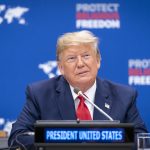Discussions in Congress have heated up concerning the protection of children from social media’s pitfalls, especially after a bipartisan effort went south last session. Lawmakers are now circling back to the drawing board, revamping strategies to shield the younger generation from the dangerous world of online trolls and oversharing relatives.
The Senate committee recently ignited the conversation with a new proposal, the Kids Off Social Media Act (KOSMA), aiming to take a more hardline approach than previous efforts by enforcing a ban on the use of social media accounts for children under the age of 13. While this might seem like a logical move to protect youngsters from the perils of TikTok dances and Facebook arguments, not all Republican lawmakers are on board. They’ve previously pushed back against more relaxed regulations, citing concerns about the potential for government overreach and the stifling of free speech.
In an attempt to create a framework that will please everyone—an impossible task, to be sure—lawmakers are now revisiting the Kids Online Safety Act (KOSA) and the Children and Teens’ Online Privacy Protection Act (COPPA 2.0). These bills, which saw an almost unanimous Senate approval last session, are being scrutinized in a bid to soothe the nerves of their House counterparts. Florida Representative Gus Bilirakis has been vocal about needing a consensus and is desperate to turn these legislative proposals into actual laws; after all, empty rhetoric won’t safeguard any kids.
KOSA, the more compelling of the two proposals, requires social media platforms to turn off their nightmare-inducing algorithms for minors and mandates the highest privacy settings as a default. It also pushes for a ‘duty of care’ principle that obligates tech companies to design their platforms in ways that shield kids from everything from mean-spirited memes to outright harassment. If companies fall short, the Federal Trade Commission would be given the green light to swoop in and take action. However, what this looks like in practicality remains to be seen.
COPPA 2.0 expands existing protections for children by raising the age limit for data collection and allows for enforcement of stricter guidelines against targeted advertising. Meant to close the so-called loopholes that Big Tech has been exploiting, it seeks to ensure that kids aren’t inundated with ads for products they shouldn’t even know exist until they’re at least old enough to apply for a driver’s license. Progressives are pushing for these measures to stop companies from profiting off of minors’ personal information, while more conservative voices grapple with the implications of increased regulation on free market principles.
KOSA requires social media companies to turn off data-driven algorithms for minors and ensure their accounts default to the most stringent safety and privacy settings.https://t.co/4E0Wnju3pJ
— The Washington Times (@WashTimes) February 11, 2025
As if that weren’t enough, KOSMA introduces additional layers of complexity by assigning the responsibility to social media companies to enforce age restrictions, but without mandating stringent age verification processes. This peculiar balance seems ripe for loopholes, begging the question of whether Big Tech will bother adhering to the new rules or simply claim ignorance when “kids will be kids” catches up to them.
With key players like Sen. Ted Cruz indicating that KOSMA should be viewed as a partner to existing social media protections rather than a standalone force, one can only wonder how legislators intend to get their act together to raise the bar for online safety. There’s a consensus among them that the legislation must pass, albeit under varying terms of agreement, creating a bipartisan dance that resembles the awkward shuffle of teenagers attempting a new TikTok trend. If they can find common ground, the legislative landscape could shift to protect the very children they claim to champion while balancing the scale of rights and responsibilities in the tech world.




